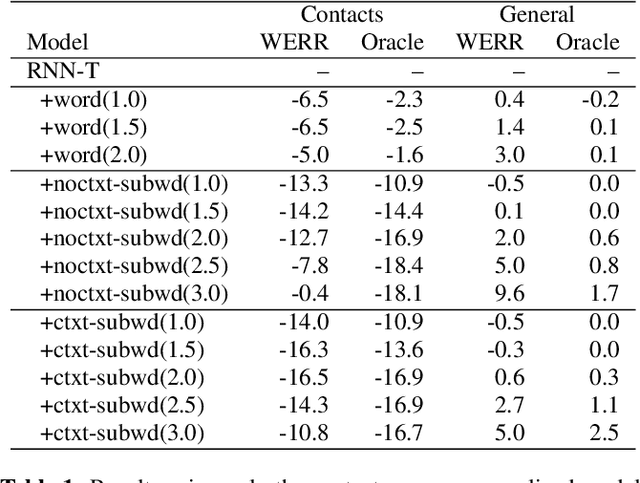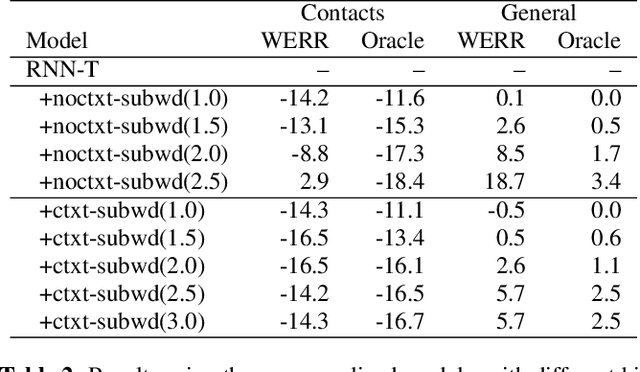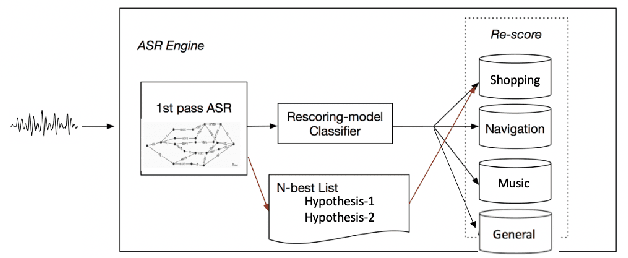Shashank Kalmane
Personalization Strategies for End-to-End Speech Recognition Systems
Feb 15, 2021



Abstract:The recognition of personalized content, such as contact names, remains a challenging problem for end-to-end speech recognition systems. In this work, we demonstrate how first and second-pass rescoring strategies can be leveraged together to improve the recognition of such words. Following previous work, we use a shallow fusion approach to bias towards recognition of personalized content in the first-pass decoding. We show that such an approach can improve personalized content recognition by up to 16% with minimum degradation on the general use case. We describe a fast and scalable algorithm that enables our biasing models to remain at the word-level, while applying the biasing at the subword level. This has the advantage of not requiring the biasing models to be dependent on any subword symbol table. We also describe a novel second-pass de-biasing approach: used in conjunction with a first-pass shallow fusion that optimizes on oracle WER, we can achieve an additional 14% improvement on personalized content recognition, and even improve accuracy for the general use case by up to 2.5%.
Domain-aware Neural Language Models for Speech Recognition
Jan 05, 2021



Abstract:As voice assistants become more ubiquitous, they are increasingly expected to support and perform well on a wide variety of use-cases across different domains. We present a domain-aware rescoring framework suitable for achieving domain-adaptation during second-pass rescoring in production settings. In our framework, we fine-tune a domain-general neural language model on several domains, and use an LSTM-based domain classification model to select the appropriate domain-adapted model to use for second-pass rescoring. This domain-aware rescoring improves the word error rate by up to 2.4% and slot word error rate by up to 4.1% on three individual domains -- shopping, navigation, and music -- compared to domain general rescoring. These improvements are obtained while maintaining accuracy for the general use case.
 Add to Chrome
Add to Chrome Add to Firefox
Add to Firefox Add to Edge
Add to Edge